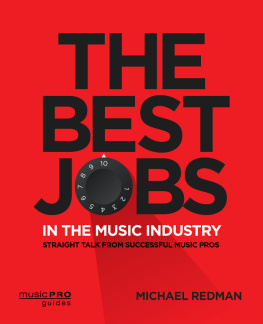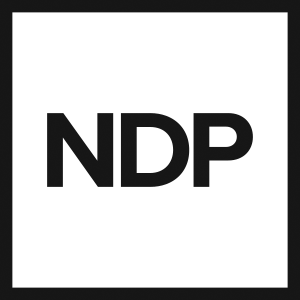Introduction
Music is one of the most regulated products in the United States. While its become more accessible than ever before with growing streaming services such as Spotify and Apple Music, artists dont have the freedom to set their own prices for their products, unlike most American businesses. Every time a person listens to a song on Spotify, the artist behind that song makes just fractions of pennies per play, which can only amount to a significant income if the artist gets millions of streams. With so many fees and regulations working against artists, many people believe the music industry is unfair toward musicians; and in some ways, it is. But I believe the next decade is set up to transform the industry and put artists at the center.
When I was thirteen years old with big dreams of stardom, I wish I had known how to break into an industry so largely centered on knowing the right people. As a young musician, I wrote a song, recorded it, and was surprised to hear talks of positioning the song to sell for other projects; however, as it happens with most new musicians, the deals didnt work out and the song wound up sitting in my notebook, unused. After getting a taste of what it could be like to be a songwriter, I wanted to find a way to get my music into the market. After months of performing and recording, it became clear to me that I didnt know someone important to get me in the door.
As a young and naive musician, I was completely unaware of what it truly meant to be a songwriter. When I dug into this sector of the music industry as an adult, I spoke with Steve Bogard, President of the Nashville Songwriters Association International. During our phone conversation, he expressed his frustrations with the inadequacy of the current laws protecting songwriters and their royalties. He told me a story about how he worked with a group of songwriters and other music professionals in 2018 to pass the Music Modernization Act, a piece of legislation meant to increase songwriters royalty rates that was ultimately frozen due to appeals from Spotify and Amazon. This meant songwriters payout rates were going to stay the same, despite months of courtroom trials fighting for an art form thats been struggling in response to major changes in large tech companies. As he went through the upsetting numbers and stories he clearly knows by heart, I could feel a sense of disappointment and frustration with a system that continues to disservice artists who are so crucial to a multi-billion-dollar industry.
On one hand, I can see why Bogard and other songwriters like him are frustrated. The current setup of the industry isnt supporting artists in a way that makes a career in music sustainable. But on the other hand, we are on the cusp of seeing Steves work in music and advocacy to protect intellectual property change the way the music industry operates.
In 2019, the music industry brought in eleven billion dollars, and 79 percent of that revenue came from streaming alone.
And it doesnt stop at the money. Traditional record labels are notorious for hindering artists creativity in order to conform to whats popular on the radio. We are all too familiar with the record label versus artist narrative, and we even see it represented in popular cinema. One of the greatest examples of this relationship is in the 2018 film Bohemian Rhapsody that includes a scene in which EMI, Queens record label, refuses to release Bohemian Rhapsody, which later would become arguably Queens greatest hit and the most streamed song of the twentieth century. However, EMI thought it to be too long and outlandish for popular radio.
DIY, or do-it-yourself, artistry is the way of the future. As consumers have turned to streaming services for their primary source of music, artists have realized that releasing music has never been easier. Platforms like Pandora and Amazon Music allow any artist to submit and upload their work, taking out the middlementhe recording studios and record labelswho used to be the only path for a new artist to get their music into the world. Because of this, many artists have invested in recording equipment to build home studios and have taken a more DIY approach to their careers. With massive developments in music technology, musicians can cater their home studios to their needs, whether that be investing a couple hundred dollars on a microphone and audio interface or spending thousands of dollars on state-of-the-art equipment and computer programs. As a result, more artists have ditched dreams of signing with labels and working in studios and have instead taken their music into their own hands, managing everything from the music making to the marketing of their songs.
In essence, DIY music-making is becoming more attractive because it enables the creator to make their own decisions based on their budget and skillset. While one artist may opt to make recordings using software like Logic Pro and market themselves on social media for free, another may invest in studio time with a professional sound engineer and hire a manager to help them navigate the live music scene.
Recently, weve seen that an artist doesnt need to record in a fancy studio with professional producers to create a hit song. One of my favorite artists is Billie Eilish, an eighteen-year-old singer-songwriter, who broke into the music scene with no intentions of doing so. She and her brother, Finneas, independently wrote and produced Ocean Eyes in their parents house and uploaded it to SoundCloud so that Eilishs dance teacher could find it for an upcoming recital. The next day, Eilish found thousands of people across the country streaming her song. By 2019, she released her debut album that won five Grammys, and major record labels have been begging to sign her. This is the future of music.
We are in the midst of an artist revolution. With so many tools at artists fingertips, from streaming services to music production software, the next decade is set up to transform the music industry and break down its traditional structures. The people making music in their basements and releasing those songs on streaming platforms are the people who will revolutionize how music business is conducted; and in the next few years, we will see more artists taking control over their careers and being at the center of contracts and laws surrounding music-making.
Gone are the days of making fun of our friends who play in garage bands and pour their free time into writing and recording music that no one will hear. The days of stigmatizing artists who give up their day jobs to pursue a lost dream are over. If all you have in your bedroom is a guitar, a microphone, a computer, and the commitment to building a fan base from the ground-up online, then this book is for you. The opportunities are endless, and artists have never had as much potential to be powerful as they are right now.

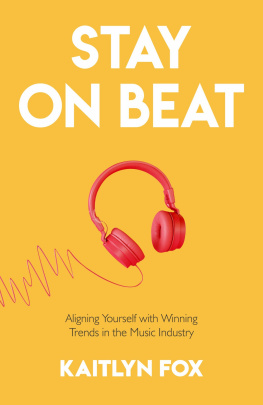
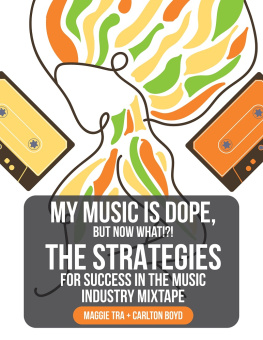

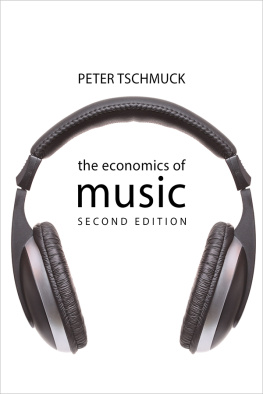
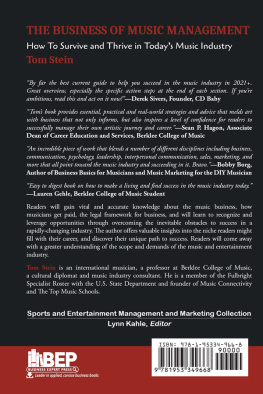
![Catherine Fitterman Radbill [Catherine Fitterman Radbill] - Introduction to the Music Industry: An Entrepreneurial Approach](/uploads/posts/book/146022/thumbs/catherine-fitterman-radbill-catherine-fitterman.jpg)
